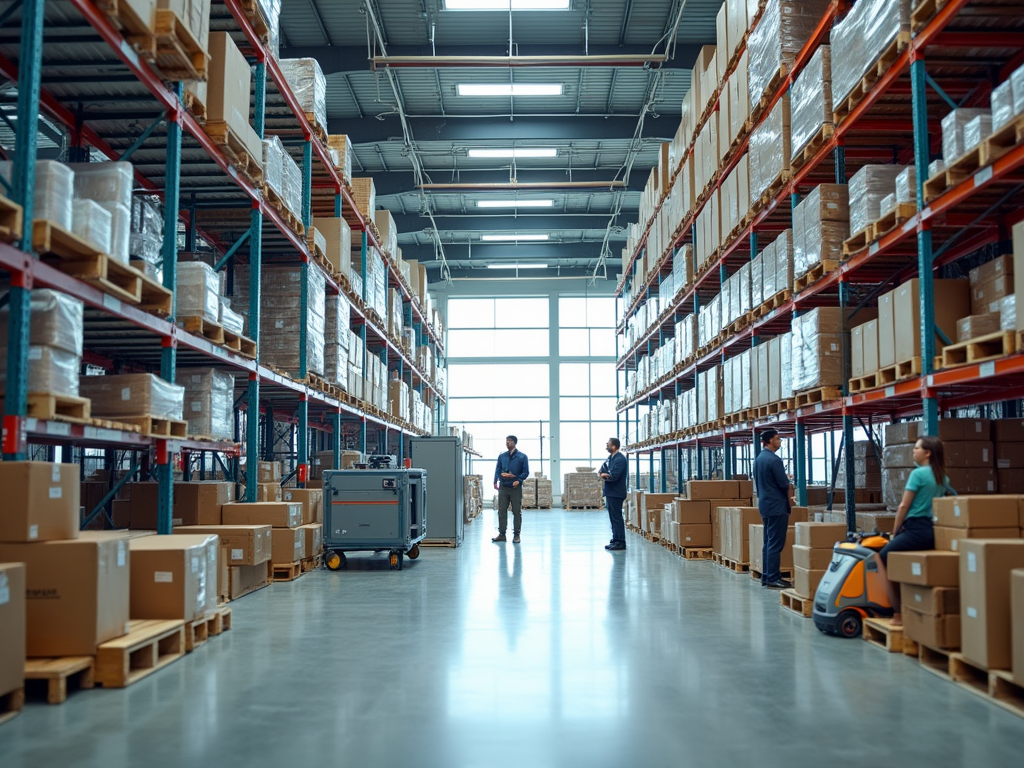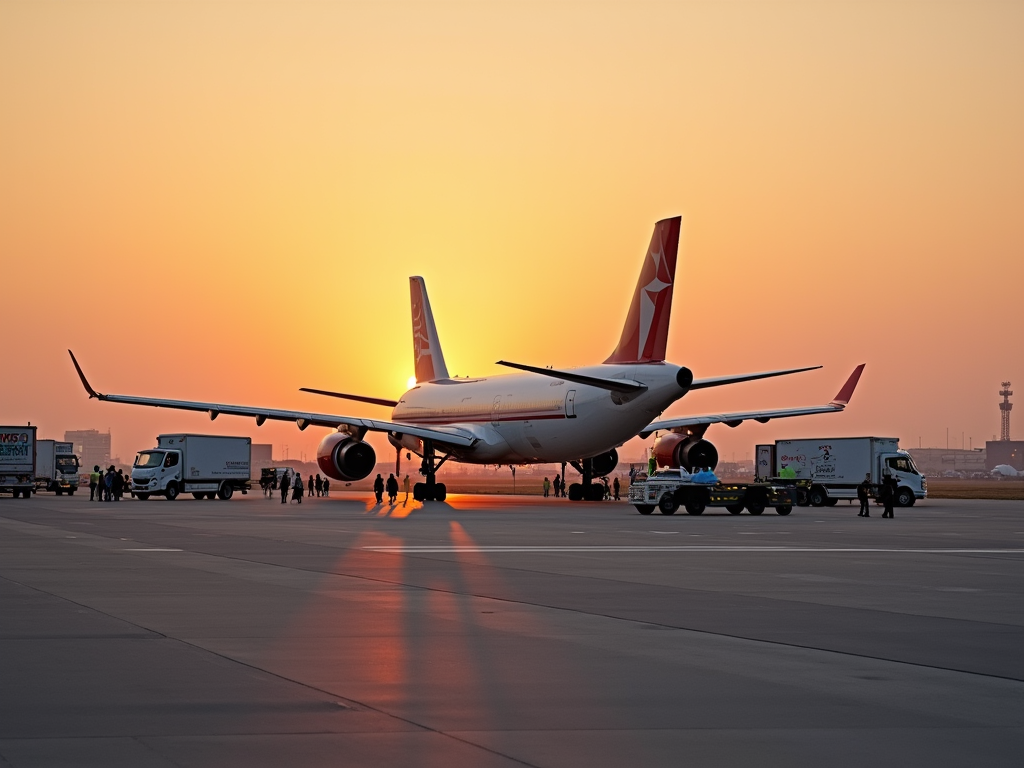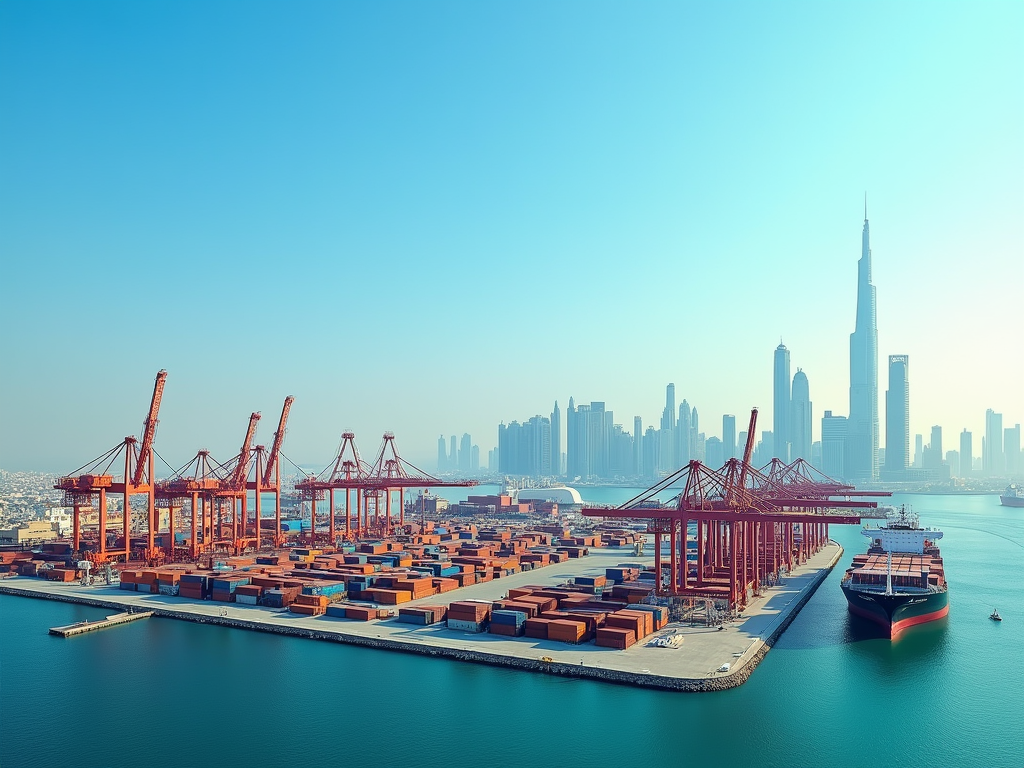Dubai’s logistics industry plays a crucial role in enhancing global supply chains by providing a strategic hub between East and West. Through its advanced infrastructure, innovative technology, and comprehensive services, Dubai has positioned itself as a pivotal player in international trade. This article delves into the key aspects of Dubai’s logistics sector and its significant impact on global markets, facilitating quicker delivery times, improved cost efficiencies, and a more resilient supply chain ecosystem.
Strategic Geographic Location

One of the principal factors contributing to Dubai’s dominance in logistics is its strategic geographic location. Situated at the crossroads of Europe, Asia, and Africa, Dubai serves as a central hub for shipping routes. This advantageous position allows businesses to easily reach emerging markets and established economies alike. The proximity to major trade routes offers companies the ability to transport goods efficiently, significantly reducing transit times. Furthermore, Dubai’s ports and airports, such as Jebel Ali Port and Dubai International Airport, are among the busiest in the world, enhancing their capacity to handle high volumes of cargo. Overall, the geographic benefits enable global businesses to streamline their supply chains effectively.
Advanced Infrastructure Framework

Dubai boasts an advanced infrastructure framework that significantly supports its logistics industry. The government has invested heavily in building state-of-the-art facilities and transportation networks. Key elements include:
- World-class airports with substantial cargo handling capacity, ensuring swift air freight services.
- Extensive road networks facilitating ground transportation across the UAE and beyond.
- High-capacity ports equipped with modern equipment and technology to expedite shipping processes.
- Logistics parks designed for warehousing and distribution, providing businesses with efficient storage solutions.
These developments not only enhance operational efficiency but also attract global businesses looking to optimize their supply chains. The structured logistics framework minimizes bottlenecks, allowing for seamless movement of goods and services across borders.
Technological Innovations and Smart Logistics
Dubai’s logistics industry has embraced technological innovations, driving the evolution of smart logistics solutions. Automation, connectivity, and digitization have become integral to supply chain management. Some of the technological advancements making waves include:
- Blockchain technology for secure and transparent transactions.
- Artificial Intelligence (AI) for demand forecasting and inventory management.
- Internet of Things (IoT) devices for real-time tracking of shipments.
- Automated warehousing solutions to enhance storage and retrieval efficiency.
These innovations significantly improve visibility and control over supply chains, allowing businesses to make data-driven decisions. By adopting these technologies, Dubai not only enhances its logistics capabilities but also establishes itself as a progressive leader in global supply chain management.
Regulatory Environment and Trade Agreements
The regulatory environment in Dubai is conducive to business, making it an attractive destination for logistics operations. The government actively promotes initiatives that support free trade and encourage foreign investment. Free Zones such as JAFZA (Jebel Ali Free Zone Authority) offer numerous benefits, including tax exemptions, customs privileges, and streamlined administrative processes. Additionally, Dubai has established robust trade agreements with various nations that enhance bilateral trade. These agreements reduce tariffs and regulatory hurdles, fostering an environment where businesses can thrive. As a result, the logistics industry benefits from increased trade flows, making Dubai a competitive player in the global supply chain landscape.
Conclusion
In conclusion, Dubai’s logistics industry significantly impacts global supply chains by leveraging its strategic location, advanced infrastructure, technological innovations, and supportive regulatory environment. The city’s comprehensive logistics services enhance efficiency, minimize costs, and improve delivery times, making it an essential hub for international trade. As global commerce continues to evolve, Dubai remains well-positioned to adapt and lead in the logistics sector, influencing supply chains worldwide.
Frequently Asked Questions
1. How does Dubai’s location benefit global supply chains?
Dubai’s central location at the crossroads of Europe, Asia, and Africa allows for efficient access to emerging markets, reduce transit times, and enhance global shipping routes.
2. What technological innovations are being used in Dubai’s logistics industry?
Technological innovations include blockchain for secure transactions, AI for demand forecasting, IoT devices for shipment tracking, and automated solutions for warehousing.
3. How does the regulatory environment in Dubai support logistics companies?
The regulatory environment is favorable due to free trade initiatives, tax exemptions, and streamlined processes in Free Zones that promote foreign investments in logistics.
4. What role do Free Zones play in Dubai’s logistics industry?
Free Zones, such as JAFZA, provide businesses with tax benefits, customs privileges, and a simplified regulatory framework, making it easier for logistics companies to operate efficiently.
5. How does Dubai’s investment in infrastructure impact logistics?
Investments in modern transportation networks, state-of-the-art ports, and cargo facilities improve operational efficiency, reduce delays, and help attract more global businesses to Dubai’s logistics sector.


